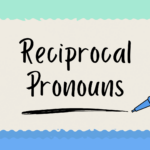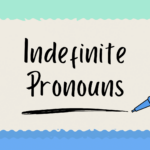Personal pronouns are little words play a big role in making our conversations flow smoothly. Instead of saying someone’s name repeatedly, we use personal pronouns to refer to them. Here’s the article on personal pronouns:
What Are Personal Pronouns?
Personal pronouns are those handy words we use instead of constantly saying names or descriptions. They’re sorted by grammatical person – whether you’re talking about yourself (first person), someone you’re talking to (second person), or someone or something else (third person).
What are The Types of Personal Pronouns?
First Person Pronouns (Speaker)
- Singular: I
- Plural: We
Second Person Pronouns (Addressed Person/People)
- Singular: You
- Plural: You
Third Person Pronouns (Others/Objects)
- Singular: He, She, It
- Plural: They
How to Use Personal Pronouns?
First Person Pronouns
I and We
Used when talking about yourself or your group.
- Example:
- I am hitting the store.
- On weekends, we tackle projects together.
Second Person Pronouns
You
Used for direct addresses or talking about a group.
- Example:
- Could you pass me the salt?
- You are all invited to the party.
Third Person Pronouns
- He, She, and It
- Used for specific individuals or objects.
- Example: He plays a mean guitar. She is engrossed in a book. The car is ancient, but it runs fine.
- They
- Used for multiple people or things.
- Example: They will visit next week. The books are on the shelf; they are sorted by genre.
Examples in Sentences:
Let’s check out some everyday sentences to see these pronouns in action.
First Person Pronouns:
- Singular: I love hiking on weekends.
- Plural: We’re brunching together on Saturdays.
Second Person Pronoun:
- Singular and Plural: Can you let your team know about the change?
Third Person Pronouns:
- Singular: He joins the meeting later. She finished homework. The cat is cute; it loves playing.
- Plural: They are the top team. Flowers are beautiful; they bloom in spring.
Frequently Asked Questions (FAQs) About Personal Pronouns
Q1: What are personal pronouns, and how do we use them?
Personal pronouns, such as I, you, he, she, it, and they, replace names to enhance communication. They’re categorized by grammatical person: first person (I, we), second person (you), and third person (he, she, it, they). Using them appropriately streamlines conversation and eliminates redundancy.
Q2: When do we use first-person pronouns?
First-person pronouns (I and We) are used when referring to oneself or a group that includes oneself. For example, “I am going to the store” or “We are working on the project together.”
Q3: How is the second-person pronoun “You” used?
The second-person pronoun “You” is used when addressing someone directly or referring to a group of people. For instance, “Can you pass me the salt?” or “You are invited to the party.”
Q4: When do we use third-person pronouns?
A: Third-person pronouns (He, She, It for singular, They for plural) are used when referring to specific individuals, objects, or groups. Examples include “He is a talented musician,” “She is reading a book,” and “They are coming to visit next week.”
Q5: Can personal pronouns be used in both singular and plural forms?
A: Yes, personal pronouns can have both singular and plural forms. For instance, “I” is the singular form of the first-person pronoun, while “We” is its plural form.
Q6: Can personal pronouns change in different contexts?
Yes, personal pronouns can change based on the context, formality, or the relationship between speakers. It’s essential to be mindful of the context to use the appropriate pronouns.
Q7: How can I improve my understanding and usage of personal pronouns?
Keep practicing and pay attention to how people use personal pronouns in conversations, read diverse materials, and incorporate them into your own writing and speaking. Additionally, refer to grammar guides for a deeper understanding of pronoun usage.
Conclusion
Personal pronouns might not steal the spotlight, but they’re language workhorses, making our conversations clearer and more efficient. Knowing how to use them can spice up your communication game, making it more engaging and straightforward. So, dive into the world of personal pronouns and make your language skills shine in everyday chats!


